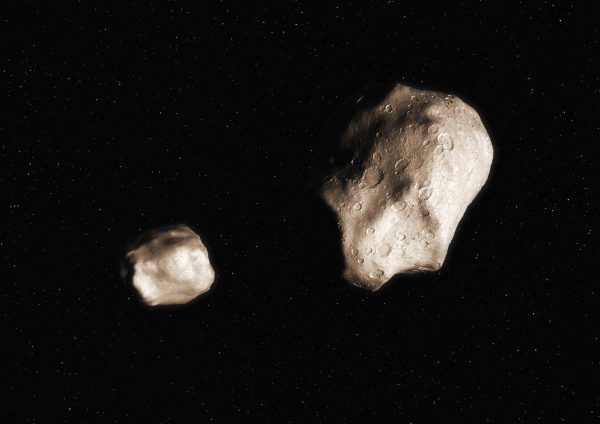Out of sight, Out of Mind: Japan’s Plan to Dump Radioactive Water into the Sea
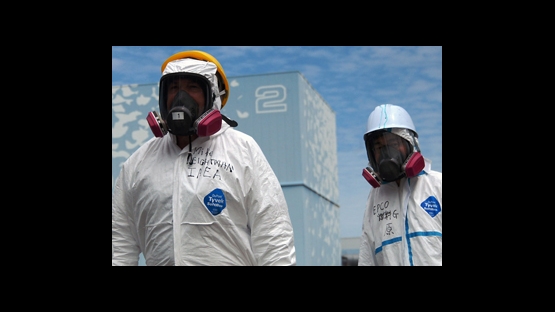
Members of the IAEA fact-finding team in Japan visited the Fukushima Daiichi Nuclear Power Plant to assess first-hand the extent of the tsunami damage and gather nuclear safety lessons that could be learned from the accident, 27 May 2011.
Japan has a decision to make: what should be done with the radioactive wastewater left over from the Fukushima disaster? The government is expressing a desire to dump it into the ocean. According to the writers at Japan Today, a decision could come very soon. If Japan goes through with this plan, Nishan Degnarain of Forbes notes, 1.2 million liters of wastewater will be released into the ocean.
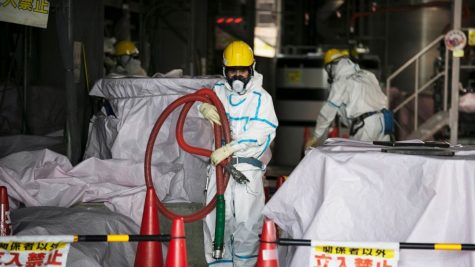
Following the historic earthquake and tsunami that hit Japan on March 11, 2011, three reactors at the Fukushima Daiichi nuclear plant largely melted, releasing radiation into the environment. The disaster was rated a 7 on the International Nuclear Events Scale, the World Nuclear Association reports – the highest rating a nuclear event can get, on par with the Chernobyl disaster. Since then, TEPCO, the plant operator, has been working to collect and treat contaminated water.
In the years following the disaster, the contaminated water has been used to cool destroyed reactors, as Tim Schauenberg from DW details. The 1000 tanks the water is stored in are expected to be full by 2022. To add insult to injury, 170 tons of additional radioactive water is generated each day through the recovery process, according to Nishan Degnarain. Thus, Japan has to decide what to do with the contaminated water when the tanks reach capacity.
Japan is set in its plan to dump it in the ocean. Prime Minister Yoshihide Suga claims that “there are no other options.” As Forbes reports, however, TEPCO plans to filter the 62 radioactive elements the water contains down to safe levels, except for the isotope tritium, which cannot be filtered out. According to the Health Physics Society, tritium is only dangerous if a large quantity is inhaled or ingested. Sabine Charmasson, a member of the French Institute for Radiological Protection and Nuclear Safety (IRSN) believes that releasing waste water into the sea “is a good method because of the diluting properties of the water,” but also says that “it’s never easy to release radioactive substances into the environment.”
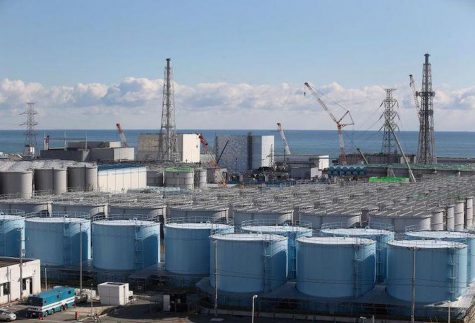
There is a large push against this decision, however. Local fishermen fear that, even if the wastewater isn’t dangerous, public perception that it is dangerous could harm the seafood industry. Kenny Stancil, a writer for Common Dreams Newscenter, notes that even a decade after the Fukushima disaster, “South Korea still bans imports of seafood from the Fukushima region,” damaging local businesses.
Others go beyond the implications of the wastewater dumping on local businesses to how it could harm the environment. Greenpeace representatives said in a recent press release that “there is no justification for additional, deliberate radioactive pollution of the marine environment or atmosphere.” Horst Hamm, a member of the Nuclear Free Future Foundation, seconds this statement, claiming that radiation from the waste can be “absorbed by the marine animals surrounding it. They will eventually end up caught in fishing nets, and come back to our plates.” Horst further told DW that “a single becquerel [a measure for radioactivity] that gets into our body is enough to damage a cell that will eventually become a cancer cell.”
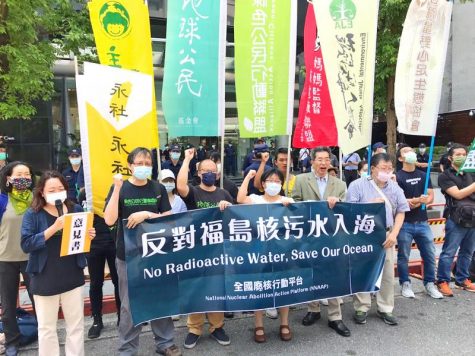
Whatever Japan plans to do with the contaminated water will be solidified soon, as the prime minister Yoshihide Suga told the press. If Japan chooses to go through with dumping the waste, the process of filtering out radioactive elements and releasing the water could take up to 30 years, according to the BBC. The fate of the ocean lies in the hands of an island.

Analise is a senior at West Morris Central high school. During her junior year, she was a world news editor for The Paw. She has a passion for educating...
































